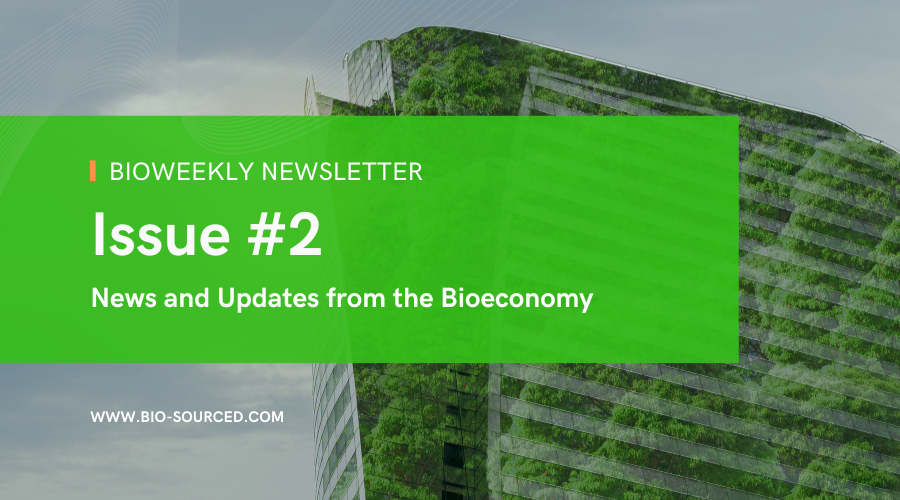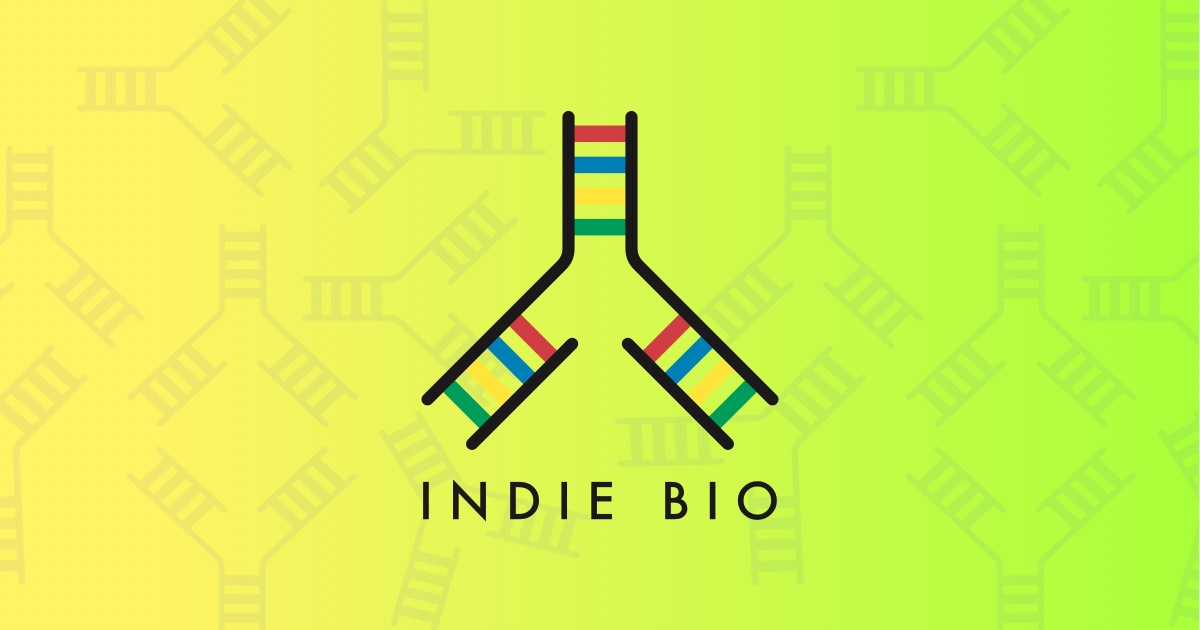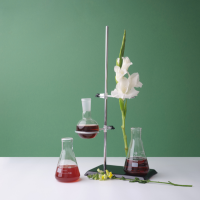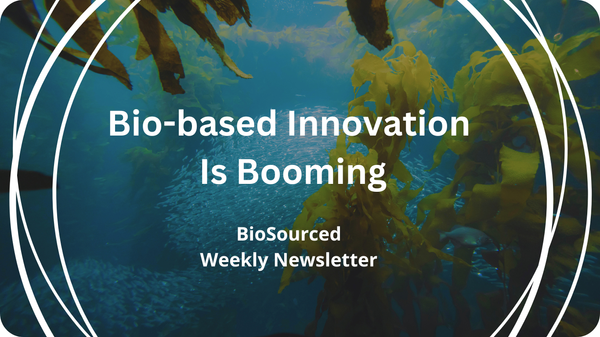Issue #2: Bioweekly Newsletter
What's new in the bio-products space? It's a sector that's constantly evolving, and the following stories just scratch the surface of recent developments in new biomaterials and applications.

In this edition:
- $21 Million in funding supports development of ZymoChem's proprietary fermentation process.
- Corrugated packaging processes now integrating bio-based polyethylene.
- Texen Group and Sulapac have partnered to offer custom cosmetic packaging made from biobased materials.
- Michelin, IFPEN and Axens inaugurate the first industrial-scale demonstrator of a bio-based butadiene plant in France.
- A study highlights the environmental superiority of recycled PLA compared to virgin feedstock.
- Lenzing has developed a new process to use its Tencel wood-based fiber for fabrics stretch and recovery properties.
- Vivobarefoot has partnered with Balena to combine 3D printing with biomaterials for Sustainable Footwear Solutions.
🚀 🚀 Plus: We recently launched a Job Board for the emerging bioeconomy! Check it out here.
$21 Million in Funding for ZymoChem
Bio-based polymer maker ZymoChem has secured $21 million in funding from investors including Breakout Ventures, Toyota Ventures, lululemon, and SOSV. The company's proprietary fermentation process converts renewable feedstocks into high-performance, bio-based, and biodegradable polymers with minimal CO2 emissions. This technology offers a significant cost advantage, improving yields by up to 50% compared to alternative processes.

Bio-based Polyethylene (PE) in Corrugated Post-Printing
LeadEdge Flexo has launched a new mounting material called cbak evolve™️, which aims to reduce the corrugated printing industry's reliance on synthetic virgin material without compromising performance. The material is made from bio-based Polyethylene (PE) and incorporates at least 30% bio-based material. It offers exceptional print performance, reduced plate height, and operational advantages for printers. LeadEdge Flexo sees cbak evolve™️ as a step towards a more sustainable option for the corrugated market.

Bio-based Packaging for Cosmetics
Texen Group and Sulapac have partnered to revolutionize beauty packaging by offering custom cosmetic packaging made from biobased materials. This collaboration aims to provide eco-conscious consumers with sustainable options while delivering a premium beauty experience. Texen Group's advanced technical capabilities allow for intricate designs, while Sulapac's materials contribute to reduced carbon footprint and the integration of recycled content.

Bio-Butadiene Plant Supports Michelin's Goal of Using 100% Renewable or Recycled Materials by 2050
Michelin, IFPEN, and Axens have inaugurated the first industrial-scale demonstrator of a plant producing bio-based butadiene in France. The project, called BioButterfly, aims to develop and commercialize butadiene from ethanol derived from biomass, replacing butadiene from petrochemicals. The demonstrator will validate the manufacturing process and pave the way for global commercialization of this new technology. The initiative aligns with Michelin's goal of using 100% renewable or recycled materials in its tires by 2050.

Recycling of PLA Reduces Carbon Footprint Compared to Virgin Material
TotalEnergies Corbion's life-cycle assessment (LCA) reveals that advanced recycling of polylactic acid (PLA) has a lower environmental impact than production from virgin feedstock. The LCA specifically highlights the reduced global warming potential of recycled Luminy PLA compared to virgin PLA. The study emphasizes the importance of considering the temporary carbon storage in bio-based materials and showcases the benefits of recycling PLA in terms of reduced carbon footprint and sustainable end-of-life.

Lenzing Develops New Fossil-Free Process for Stretch Fabrics
Lenzing, the Tencel lyocell manufacturer, developed a new process that allows its wood-based fiber to create stretch fabrics with enhanced recovery properties. This fossil-free process maintains closed-loop production and traceability while addressing the fashion industry's reliance on fossil-fuel based synthetics. The stretch fabrics offer comfort, easy care, and maintain a smooth appearance even after home laundering. Lenzing is working with mill partners to develop stretch fabrics that meet international standards and respond to growing consumer demand for sustainable and comfortable apparel.

Vivobarefoot partners with Balena to form VivoBiome
Vivobarefoot, the minimalist footwear brand, has partnered with Balena, a material science company, to address the negative impacts of the footwear industry through the use of 3D printing and biopolymer materials. Their goal is to create sustainable and biodegradable footwear that reduces waste and reconnects wearers to nature. The partnership aims to enable on-demand production and personalization, extending the lifespan of products. The companies plan to test the footwear within the next 6 months and make it available to customers within 18 months.

That's it for this week!
Stay tuned for more updates about sustainable bio-based innovations.
Not subscribed yet?











